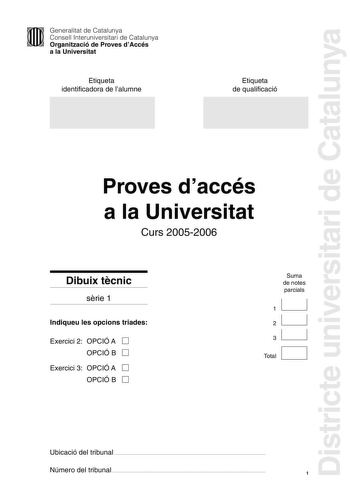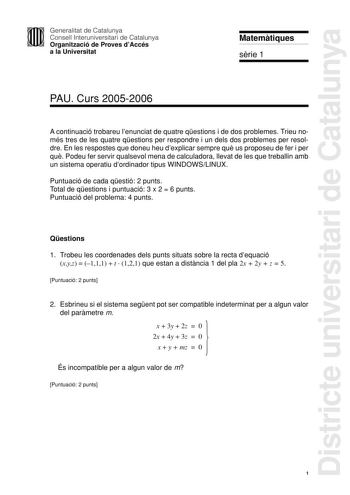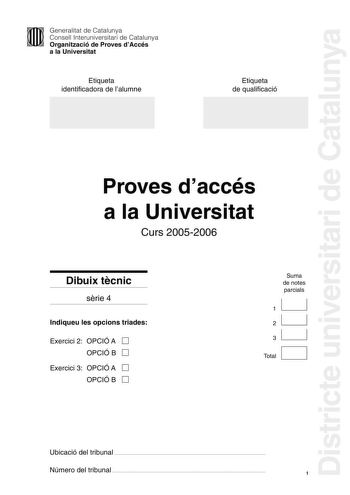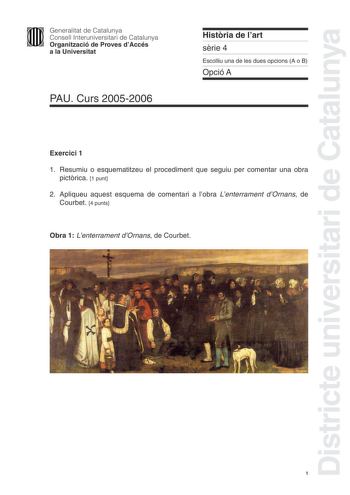Examen de Inglés de Cataluña (selectividad de 2006)
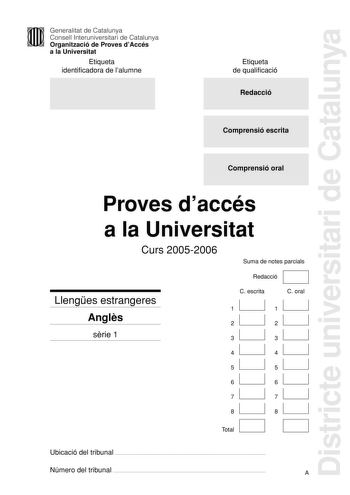
| Comunidad Autónoma | Cataluña |
|---|---|
| Asignatura | Inglés |
| Convocatoria | Ordinaria de 2006 |
| Fase | General |
Temas mencionados new_releases
Fast mapping
In cognitive psychology, fast mapping is the term used for the hypothesized mental process whereby a new concept is learned (or a new hypothesis formed) based only on a single exposure to a given unit of information. Fast mapping is thought by some researchers to be particularly important during language acquisition in young children, and may serve (at least in part) to explain the prodigious rate at which children gain vocabulary. In order to successfully use the fast mapping process, a child must possess the ability to use "referent selection" and "referent retention" of a novel word. There …
Fuente: wikipedia.org
Maya civilization
The Maya civilization was a Mesoamerican civilization developed by the Maya peoples, and noted for its hieroglyphic script—the only known fully developed writing system of the pre-Columbian Americas—as well as for its art, architecture, mathematics, calendar, and astronomical system. The Maya civilization developed in an area that encompasses southeastern Mexico, all of Guatemala and Belize, and the western portions of Honduras and El Salvador. This region consists of the northern lowlands encompassing the Yucatán Peninsula, and the highlands of the Sierra Madre, running from the Mexican state…
Fuente: wikipedia.org
Animal language
Animal languages are forms of non-human animal communication that show similarities to human language. Animals communicate by using a variety of signs such as sounds or movements. Such signing may be considered complex enough to be called a form of language if the inventory of signs is large, the signs are relatively arbitrary, and the animals seem to produce them with a degree of volition (as opposed to relatively automatic conditioned behaviors or unconditioned instincts, usually including facial expressions). In experimental tests, animal communication may also be evidenced through the use …
Fuente: wikipedia.orgCatalan language
Catalan (autonym: català) is a Romance language derived from Vulgar Latin and named after the medieval Principality of Catalonia, in northeastern modern Spain and adjoining parts of France. It is the national and only official language of Andorra, and a co-official language of the Spanish autonomous communities of Catalonia, the Balearic Islands, and Valencia (where the language is known as Valencian, and there exist regional standards). It also has semi-official status in the commune of Alghero, situated on the northwestern coast of the island of Sardinia (Italy), where a variant of it is spo…
Fuente: wikipedia.orgUniversity of Bergen
The University of Bergen is a public university located in Bergen, Norway. Although founded as late as 1946, academic activity had taken place at Bergen Museum as far back as 1825. The university today serves approximately 17,000 students, and is one of eight universities in Norway.
Fuente: wikipedia.org
Border Collie
The Border Collie is a working and herding dog breed developed in the Anglo-Scottish border region for herding livestock, especially sheep. It was specifically bred for intelligence and obedience.
Fuente: wikipedia.orgMax Planck Institute for Evolutionary Anthropology
The Max Planck Institute for Evolutionary Anthropology is a research institute based in Leipzig, Germany, founded in 1997. It is part of the Max Planck Society network.
Fuente: wikipedia.org
Julia Fischer
Julia Fischer (born) is a German classical violinist and pianist. Biography. Fischer, born in Munich, Germany, is of German-Slovak parentage. Her mother, Viera Fischer (née Krenková), a Jew, came from the German minority in Slovakia and immigrated from Košice, Slovakia (then Czechoslovakia), to the Federal Republic of Germany in 1972. Her father, Frank-Michael Fischer, a mathematician who was born in East Germany, moved in the same year from Eastern Saxony to West Germany.
Fuente: wikipedia.orgPaul Bloom (psychologist)
Paul Bloom (born December 24, 1963) is a Canadian American psychologist. He is the Brooks and Suzanne Ragen Professor of psychology and cognitive science at Yale University. His research explores how children and adults understand the physical and social world, with special focus on language, morality, religion, fiction, and art.
Fuente: wikipedia.org